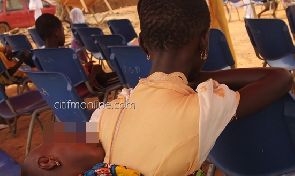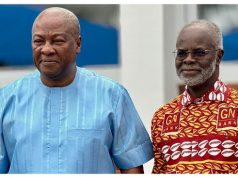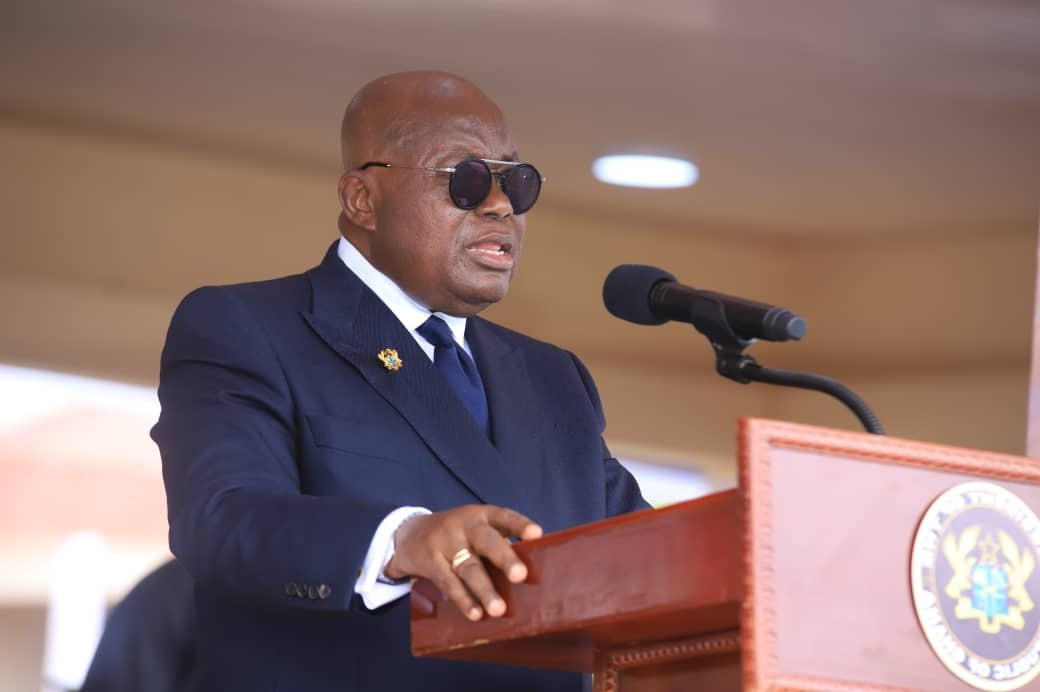The Defence for Children International Ghana, one of the alliance partners implementing the Girls Advocacy Alliance in Ghana, has disclosed that there is an upsurge of child marriages in some communities in the country.
It said the phenomenon was occurring because child protection institutions that were supposed to undertake regular and effective education on child marriages at the communities lacked resources to do so.
It called for inter-agency co-ordination in order to provide a common platform to protect children’s rights and their welfare.
Dr George Appeagyei-Ampong, Executive Secretary of the NGO, told the Ghana News Agency, at the sidelines of a media forum, in Accra, on Monday.
He said there must be a linkage between child protection institutions like the Domestic Violence and Victims Support Unit, the Department of Social Welfare and the Commission on Human Rights and Administrative Justice and the community child protection structures to promote children’s rights and safety.
‘‘I can say on authority that they lack resources because am working with them and even some cases reported to DOVSSU at the regional level, they lack transport to go to the community to remedy the situation;’’ he noted.
He said although every agency had specific mandates, but all of them aimed at protecting children’s rights, there must be a common platform to protect children from abuse and sexual exploitation.
He said interactions with parents and guardians who gave out their children for marriage showed that they were ignorant about the health and psychological implications on their children.
‘‘Parents thought they were doing so to reduce sexual promiscuity among children so our interaction with them helped us to understand the issues surrounding child marriage and that helped us to sensitise the perpetrators on the health implications and increased public awareness among young women to abstain from the practice’’, he added.
He said the NGO was undertaking Mapping and Policy Analysis exercise of all child protection legislations and policies in order to identify the policy gaps, traditions and customs hindering children’s rights and welfare
Dr Appeagyei-Ampong called for capacity-building of community leaders and advocates so that they could sensitise community members on the dangers and repercussions of child marriage in order to stop the practice.
He said the NGO had established child rights clubs in schools and communities and sensitised young girls through workshops and seminars to empower them to report cases of abuse and abstain from child marriages and other forms of sexual exploitation.
Madam Anna N-NaBere, Girls Advocacy Alliance Project Manager, giving the overview of the Girls Advocacy Alliance (GAA) project, said it’s a five-year programme with funding from the Dutch Ministry of Foreign Affairs.
She said the project had the central focus of ensuring equal rights and opportunities for girls and young women in the country.
The project is being implemented in 10 countries in Africa and Asia.
In Ghana, the project is being implemented in five regions including Greater Accra, Ashanti, Northern, Upper West and Eastern regions.
The project is being implemented by three alliance partners in Ghana- the Defence for Children International Ghana, Plan International Ghana and the Ghana NGO Coalition on the Rights of the Children.
According to her, the long-term goals of the project was to ensure that young girls in the selected participating countries would be freed from all forms of gender-based violence and economically-empowered by the year 2020.
The specific objectives of the project is aimed at reducing child marriages, sexual violence and abuse, commercial sexual exploitation of children, while young women have access to technical and vocational training and decent work opportunities.
Madam Rose Beyuo Siilo, the Programme Support Manager of Plan International Ghana, said the NGO is a child right organisation established in 1992 and currently operating in more than 40 districts and 300 communities in Ghana.
It had set-up offices in four regions to carry its operations in the Upper West, Eastern, Central and Greater Accra regions.
It solicits funding from international Non-Governmental Organisations, philanthropists and corporate bodies in developed countries to sponsor children in deprived communities. It undertook programmes to enhance children’s protection, economic security as well as ensuring access to water and proper sanitation.
It ensured children were safe from all forms of abuses and formed children’s school clubs to empower children to understand their rights while key members of the community like chiefs, queen mothers and assembly members were also empowered to protect children’s rights.
It also supplied stationery to vulnerable pupils to attend school and enhance the livelihoods of households.








